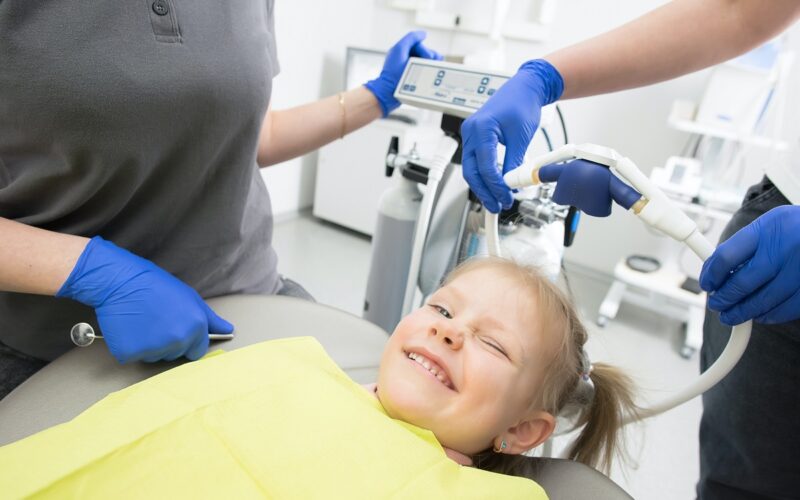
Bruxism is a condition that causes the teeth to grind together, often at night. This can result in jaw and tooth pain, headache, earache, and facial pain. Bruxism can also disturb sleep and make it hard for children to concentrate during the day — but it’s not something you have to live with for the rest of your life! Here’s what you need to know about bruxism and how to treat it:
How frequent is nocturnal bruxism in children?
Nocturnal bruxism is most common in children. It’s also called nocturnal parafunctional activity, or NPA. The condition affects many people and can occur in adults as well as children. The causes of bruxism are not known for certain, but researchers think that it may be related to stress and anxiety, or possibly even genetics (meaning your child might have a tendency toward this behavior).
In fact, it’s estimated that one in five children grind their teeth at night. Most of these kids suffer from sleep-related problems, including difficulty falling asleep and frequent awakenings during the night.
A child may also have a history of headaches or tension headaches that seem to be aggravated by stress or anxiety.
What are the causes of pediatric bruxism?
- Stress and anxiety.
- Teeth grinding.
- Sleep deprivation (for example, a child who stays up late to play video games).
- Tension in the jaw from clenching or grinding teeth during sleep, which may be related to stress, anxiety, or tension.
It can also occur due to:
- A dental appliance such as a retainer that is fitted too tightly around your child’s teeth; this can lead to bruxism if it causes pain or discomfort for your child when wearing the device for long periods of time during the day or night – though this is rare with modern retainers and not likely to happen if properly fitted by an orthodontist!
- A loose tooth (where there is probably no pain but could cause other problems); see below on how you should check that all your kids’ baby teeth have come out before starting them on solid foods; don’t worry if they’re not all out yet – just make sure they come out soon!
Does bruxism affect children’s development?
Bruxism can affect your child’s sleep, oral health and development of the jaw.
Sleep: Bruxing can cause insomnia and other sleep disorders in children. This can lead to anxiety, depression and learning difficulties.
Oral health: Bruxing causes tooth decay due to the force exerted on your teeth while grinding them together (especially if you have a high bite force). It may also cause soreness or pain in your jaw joints as they rub against each other while you grind your teeth at night. This can lead to headaches and TMJ (temporomandibular joint syndrome), where joints become inflamed or painful over time because of repeated stress from grinding at night time.
Development of the jaw: Bruxing during childhood could affect how well-aligned the upper teeth are with their lower counterparts when fully grown up.
Jaw pain: If it’s not treated, bruxism will continue into adulthood – which means there will be more serious issues like TMJ occurring too!
How is childhood bruxism treated?
Treatment of childhood bruxism depends on its cause. If your child is grinding his or her teeth, a mouth guard for sleeping may be prescribed to protect the teeth. A night light and/or sound machine can also help with sleep problems caused by anxiety. The best way to prevent the development of childhood bruxism is to provide plenty of toys and activities for your child, who will most likely have less stress on their bodies when they are occupied in play. You should also make sure that your child has regular checkups with a dentist so that any signs of developing bruxism can be identified early on and treated appropriately.
The severity of bruxism depends on the person
It may be mild, moderate or severe. The frequency and intensity of teeth grinding varies from person to person and can depend on a number of things such as:
- How often the child grinds their teeth
- How hard they grind their teeth
- The length of time they grind their teeth for
- Whether they have an increased level of stress at home or at school
Can bruxism in children be prevented or avoided?
Bruxism is a common problem in children. The condition can cause the child’s teeth to wear down prematurely, which can lead to tooth sensitivity, gum recession and other problems. Fortunately, there are ways to prevent or reduce bruxism in your child.
1.Make sure your child gets quality sleep.
2.Do not let your child drink carbonated beverages or juice before bedtime because they can trigger jaw clenching in some people.
3.If you suspect that stress may be contributing to your child’s bruxism, try relaxation techniques such as yoga or meditation with him or her before bedtime so he or she can unwind before going to sleep.
If you suspect your child has bruxism, you should take them to your dentist for an assessment
Bruxism is a normal part of life, but if you think your child’s bruxing is out of the ordinary, it could be worth talking to their doctor about it. If you’re worried about your child’s bruxing habits, don’t be afraid to ask questions—you might find that he or she just needs some extra help at school or with homework!Your dentist will be able to tell you if your child has bruxism and also recommend a treatment plan to help them manage their condition.
Questions to ask your doctor
- What is the cause of my child’s bruxism?
- How can I help my child stop grinding his teeth?
- Is there any treatment that can help stop the grinding?
- How can I help my child relax before bedtime?
- What exercises can I do with my child to strengthen his jaw muscles?
If your child does have bruxism, they may need special orthodontic appliances or additional oral hygiene treatments (such as gum massage) in order to try and stop the problem before it becomes severe enough that they need more invasive surgery later on down the line.





